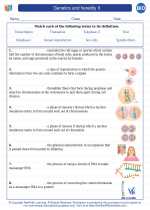Quantitative Observation
Quantitative observation is a method of gathering and analyzing data that involves measuring and quantifying attributes, properties, and characteristics. This type of observation focuses on numerical data and provides a way to objectively analyze and describe the natural world. In the field of Biology, quantitative observation is an essential tool for studying various phenomena, from the growth of microorganisms to the effects of environmental factors on plant and animal populations.
Key Concepts to Understand
- Measurement: Quantitative observation involves the process of measurement using standard units such as meters, grams, liters, and seconds. Accurate and precise measurements are crucial for obtaining reliable data.
- Data Collection: The collection of quantitative data often involves instruments such as rulers, thermometers, balances, and timers. These tools help in obtaining precise measurements of various biological phenomena.
- Data Analysis: Quantitative observations are analyzed using statistical methods to identify patterns, correlations, and trends in the data. This analysis helps in drawing conclusions and making predictions based on the observed quantitative data.
Study Guide for Quantitative Observation
- Understanding Measurement Units: Learn about different measurement units used in Biology, such as length (meters), mass (grams), volume (liters), and time (seconds).
- Practicing Data Collection: Gain experience in using measurement tools such as rulers, balances, thermometers, and stopwatches to collect quantitative data from biological samples and experiments.
- Data Analysis Techniques: Familiarize yourself with basic statistical techniques such as mean, median, mode, and standard deviation. Understand how these techniques are used to analyze and interpret quantitative data.
- Experimental Design: Study the principles of designing experiments to collect quantitative data in Biology. Understand the importance of controlling variables and replicating experiments for reliable results.
- Real-life Applications: Explore real-world examples of quantitative observation in Biology, such as measuring the growth of plants under different light conditions or quantifying the effects of pollutants on aquatic organisms.
By mastering the principles of quantitative observation, students can gain valuable skills for conducting scientific research and understanding the quantitative aspects of biological phenomena. Remember, quantitative observation is essential for generating reliable data and drawing meaningful conclusions in the field of Biology. Mastery of this concept will provide a strong foundation for future scientific endeavors.
.◂Biology Worksheets and Study Guides High School. Genetics and heredity II
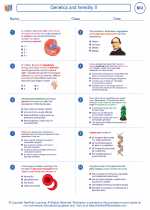
 Worksheet/Answer key
Worksheet/Answer key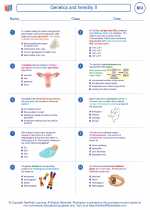
 Worksheet/Answer key
Worksheet/Answer key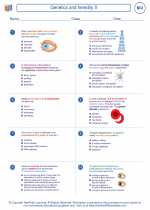
 Vocabulary/Answer key
Vocabulary/Answer key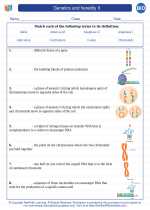
 Vocabulary/Answer key
Vocabulary/Answer key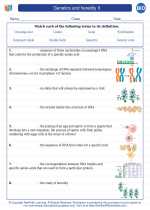
 Vocabulary/Answer key
Vocabulary/Answer key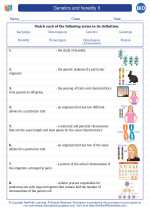
 Vocabulary/Answer key
Vocabulary/Answer key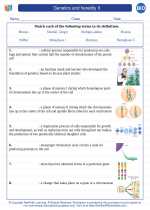
 Vocabulary/Answer key
Vocabulary/Answer key
 Vocabulary/Answer key
Vocabulary/Answer key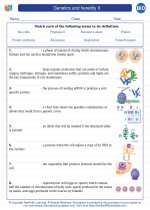
 Vocabulary/Answer key
Vocabulary/Answer key